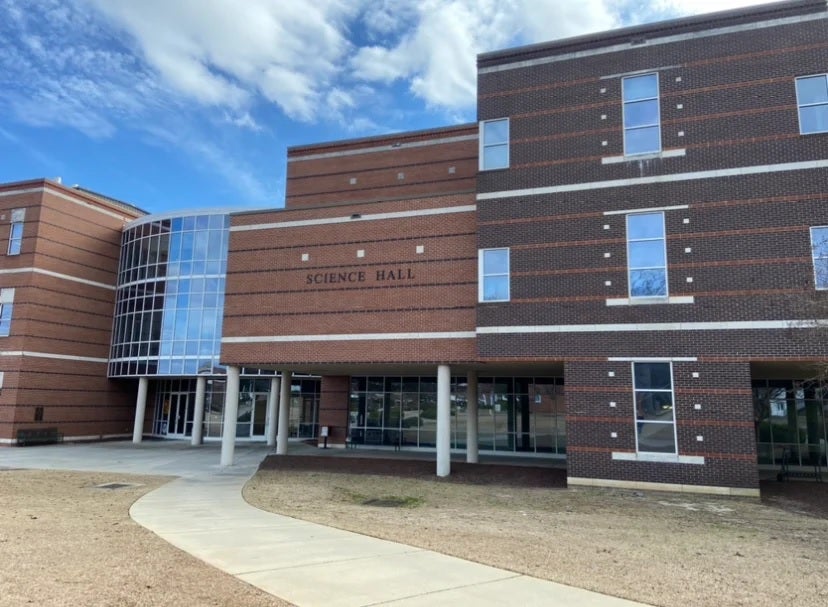Correction note: an earlier version of this article stated that the the Master of Science in Allied Health with a Concentration in Nutrition program would be moving to the new School of Public Health. This is not the case, as that program will remain within Augusta University’s Interdisciplinary Health Sciences Department. This error has been corrected.
Augusta University has announced its initial leadership appointments for the new School of Public Health.
The university first announced it would be launching the new school in spring of last year. In April of this year, after a months-long nationwide search, the school selected its first dean, Dr. Teresa Waters, transferring from her role as chair of the College of Public Health at the University of Kentucky.
The new school entails uniting several graduate programs already offered at AU, such as in data science, biostatistics and epidemiology.
“These are all wonderful programs to put within the school, but they already existed,” said Waters. “We really want to first focus on moving the current programs and current students into the school, making sure that they’re well taken care of, but they are continuing to make progress and to be successful.”
Last month, Waters visited Augusta to meet with AU faculty, and work alongside the provost’s office and the university’s planning committee to consider potentials for the new school’s initial, interim leadership appointments.
Dr. Aaron Johnson will serve as the new school’s interim associate dean for Research and Community Engagement and as interim chair of the Department of Social & Behavioral Sciences, and Health Promotion.
Johnson is a professor of psychological sciences, and currently the director of AU’s Institute of Public and Preventive Health
“I have about a dozen faculty at the Institute, and all those faculty will be merged into the school of population health sciences, which is part of the Medical College of Georgia,” said Johnson on the reorganization of programs under one banner.
He also notes that faculty from the Department of Kinesiology — which is in AU’s College of Education — as well as from the College of Allied Health Science, will be brought into the new school.
“There’s really not a lot of new units being created that aren’t already there doing work,” Johnson said. “It’s really just a matter of organizing them in a different way so that they can be more efficient and more effective.”
Gianluca De Leo will serve as interim chair of the new school’s Department of Health Management, Economics, and Policy.
“It’s not only that the faculty are moving, but the programs where the faculty teaches are moving,” explains De Leo, a professor in the Department of Interdisciplinary Health Sciences, who also once served as chair of the Department of Clinical and Digital Health Sciences — both of which are in the College of Allied Health Science.
The Master of Public Health and the Ph.D. in Applied Sciences, two programs in the Interdisciplinary Health Sciences Department, will all move to the upcoming School of Public Health.
De Leo, who has a Ph.D. in bioengineering and bioelectronics, as well as an MBA, notes that another school of public health in Georgia (as one already exists at the University of Georgia in Athens) producing new research and educating new professionals in the area would prove beneficial to the state. “Even if it’s going to be just one more school in our state, it’s a great opportunity for everybody,” he said.
Rounding out the new college’s leadership faculty will be Bobbie Willcox, director of the Institute of Public and Preventive Health, serving as interim assistant dean for administration, and Dr. Jie Chen, serving as both interim associate dean for Academic and Student Affairs and interim chair of the Department of Biostatistics, Data Science, and Epidemiology.
Dr. Chen is currently a professor and interim chair of the Department of Population Health Sciences.
“The current educational programs housed in Population Health Sciences will be positively impacted by the upcoming new School of Public Health,” said Chen, noting the master’s programs in Epidemiology, Data Science, Biostatistics (for which AU also offers a doctorate) and Clinical and Translational. “These programs all contribute to the literacy of public health from different angles, directly and indirectly.”
An accreditation task force continues to meet, as it has for months, to prepare the school to submit its accreditation application in time for the fall semester. Renovations are underway for the Science Hall at AU’s Summerville campus, which will house the new college.
Johnson notes that, as Augusta approaches, the burgeoning School of Public Health will have to develop and nurture an environment that accommodates a diverse range of academic disciplines.
“You’re bringing together units from several places on campus who have had very different missions, very different expectations in terms of the balance of teaching and research,” said Johnson, anticipating the challenge of merging programs and faculty towards a new institution, whose offices, classrooms and labs will be completed in phases over the next 18 months.
“Trying to create a new school, with a positive work culture, when the units that you’re bringing together are still located physically in the same places where they’ve always been, you need to make them feel like they’re part of a new organization that just isn’t physically all together yet.”
Skyler Q. Andrews is a staff reporter for The Augusta Press. Reach him at skyler@theaugustapress.com.











